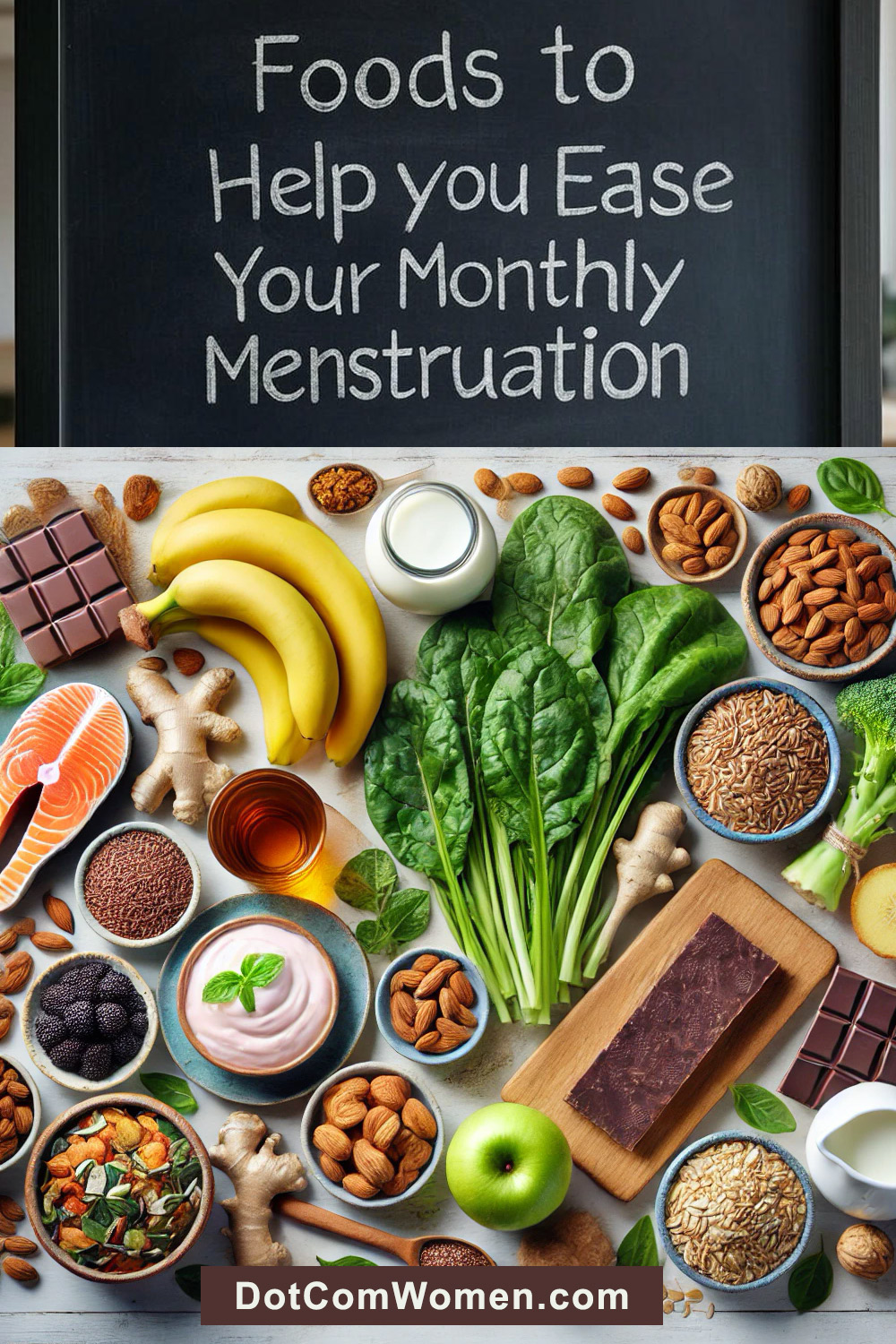Foods to Help you Ease Your Monthly Menstruation
Menstruation is a natural process, but it often comes with discomfort, including cramps, bloating, fatigue, and mood swings. Fortunately, your diet can play a significant role in alleviating these symptoms. Here are some foods that can help ease your menstrual cycle and keep you feeling your best.
1. Dark Leafy Greens
Leafy greens like spinach, kale, and Swiss chard are rich in iron, which is essential for replenishing the blood lost during menstruation. They also contain magnesium, which helps relax muscles and reduce cramps.
2. Bananas
Bananas are high in vitamin B6 and potassium, which help reduce bloating and water retention. They also promote the production of serotonin, which can help improve mood and reduce irritability.
3. Ginger
Ginger has anti-inflammatory properties that can help reduce menstrual pain and nausea. Drinking ginger tea or adding fresh ginger to meals can provide relief from cramps and digestive discomfort.
4. Dark Chocolate
A good-quality dark chocolate (at least 70% cocoa) is packed with magnesium, which helps relax muscles and ease cramps. It also boosts serotonin levels, helping to combat mood swings and fatigue.
5. Yogurt
Rich in probiotics and calcium, yogurt supports gut health and reduces bloating. Calcium also helps in muscle relaxation, which can ease menstrual cramps.
6. Salmon
Fatty fish like salmon is loaded with omega-3 fatty acids, which have anti-inflammatory properties that can help reduce the severity of cramps. It also provides vitamin D, which helps in calcium absorption.
7. Nuts and Seeds
Almonds, walnuts, and flaxseeds are great sources of magnesium and omega-3 fatty acids, which help reduce period pain and promote hormonal balance.
8. Whole Grains
Brown rice, quinoa, and oats are rich in fiber and B vitamins, which help maintain steady blood sugar levels and reduce mood swings. The fiber content also supports digestion and helps prevent bloating.
9. Herbal Teas
Chamomile and peppermint tea have calming effects that can help soothe menstrual cramps and promote relaxation. Raspberry leaf tea is also known to support uterine health and reduce discomfort.
10. Water
Staying hydrated is key to reducing bloating and alleviating headaches that may occur during menstruation. Drinking plenty of water also helps in maintaining energy levels.
Final Thoughts
Incorporating these nutrient-rich foods into your diet can help alleviate menstrual discomfort and improve your overall well-being. Additionally, avoiding excess caffeine, alcohol, and salty or processed foods can further reduce bloating and mood swings. Healthy exercise will also keep you feeling fresh and happy during periods. By making mindful food choices, you can support your body through your menstrual cycle and feel more comfortable each month.

